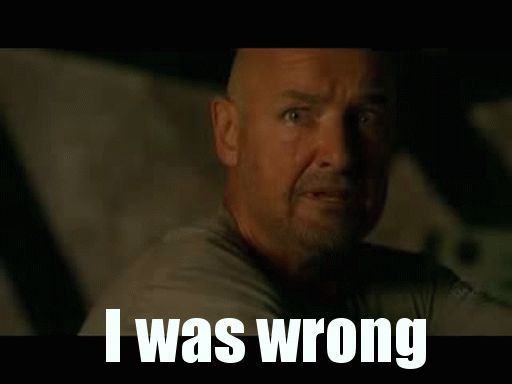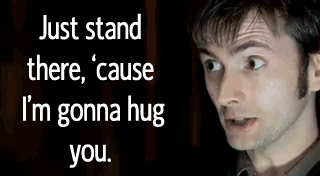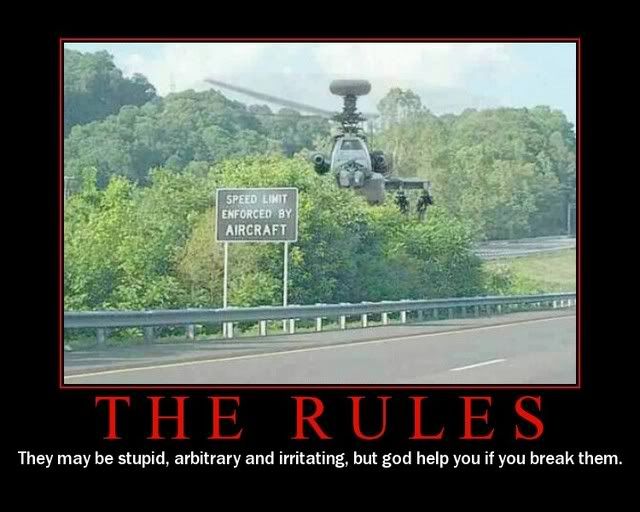As I saw someone on Twitter point out this week, if CBS was smart they would encourage the fan film community in the same way Lucasfilm does. It's not hurting them a bit. Having the fan base energized enough to create quality fan films means only good things for your brand, and CBS should be encouraging Axanar if anything.
That's one possible way of doing it. Again, if it belongs to them, then it's their decision who gets to do stuff in it. I get to write Trek fiction because I'm licensed to do so (well, Pocket is licensed and they hire me). But if they don't want to give that permission, and instead want to crack down, that's their decision too. Because it's their stuff.
It's the "borrowing toys" analogy we writers like to use. If you go over to a friend's house and they let you play with their toys, you know that you don't have the same liberties that you have with your own toys. When I was a kid, my friend across the street had much better toys than I did -- space LEGO sets,
Star Wars action figures and playsets, a die-cast '60s Batmobile with a little plastic flame that came in and out of the rocket exhaust when the wheels turned -- and I loved going over the play with them, but I knew I couldn't take them home with me or break them or take them apart at my whim, because
they weren't mine. And once his family moved away, I had no more access to those toys. So I just had to play with my own toys.
I mean, how do you feel about Wicked? Should Maguire have come up with his own setting instead of taking Baum's?
(Yes, Baum's work is public domain, but I'm talking about in principle.)
As you say, it's public domain. The toys aren't someone else's property, so everyone gets to play with them.
There isn't a single work of art that doesn't owe its existence to a series of inspirations. Nothing emerges tabula rasa. No matter how you try, you run over the same ground, consciously or unconsciously.
Of course not, but I see a clear difference between setting your story in someone else's universe and setting it in your own. I started out as a preteen building a future history that I initially imagined as being the
Star Trek universe a century after TOS (an idea about seven years ahead of its time), but after a few months, I realized the Trek tie-in was too restrictive to my imagination and that what I was imagining had little to do with Trek anyway, so I just cut out what little Trek connection there was and made it my own universe. And over time, it came to have less and less resemblance to Trek (for instance, I realized humanoid aliens were implausible and started designing more exotic ones). And through numerous reinventions and overhauls, it eventually evolved into the universe that the majority of my original work has been set in, a universe that has practically nothing in common with
Star Trek aside from a generally optimistic attitude.
Well, you see how this becomes this endless quest for total 100% originality which never yields anything.
That's not what it should be about. Anyone who thinks in those terms is not applying the common sense I'm suggesting. My universe is inspired by
Star Trek in a number of ways, but it's clearly not set in the same reality as
Star Trek.
Galaxy Quest is a pastiche of ST and numerous other SFTV shows from the '60s, '70s, and '80s, but it's clearly set in its own distinct universe. It's very easy to tell the difference between something that presents itself as
Star Trek and something that's just influenced by it.
Axanar is explicitly presenting itself as part of the
Star Trek universe. It uses what are overtly Starfleet ship designs. It's named for a planet that was canonically mentioned in ST, and it's explicitly about a war with the Klingons. Yes, obviously every creative work is derived from other creative works in some ways, but there's a difference between being inspired by something and making a direct copy of it. If they want to be independent of CBS's control, they could just change their ship designs and planet names and tweak a few other details and make it something set in an original universe. It'd still probably be very imitative, but it wouldn't be trying to use someone else's trademarked and copyrighted material without permission. And it would free their imaginations to develop the universe in new directions that would let it become more of a distinct creation in its own right. Which is enormously more satisfying to a creator than just borrowing someone else's toys.
Heck, the FASA war-games stuff they're basing this on is pretty far removed from what ST was ever about anyway, so maybe they could change the names and designs and historical details and the resultant work would be
very different from a Trek story.
How on earth can anyone make any comment about the cutting style of Star Trek Beyond?
All that has been released is a teaser trailer.
Without wanting to derail this topic, but.... I have always been amazed by the capacity of some fans to judge a new show or movie in their fandom by a short trailer. Some have already literally judged the entire movie by it.
It seems too many people don't realize that trailers are just commercials. They're made by a marketing agency, not by the filmmakers themselves.







